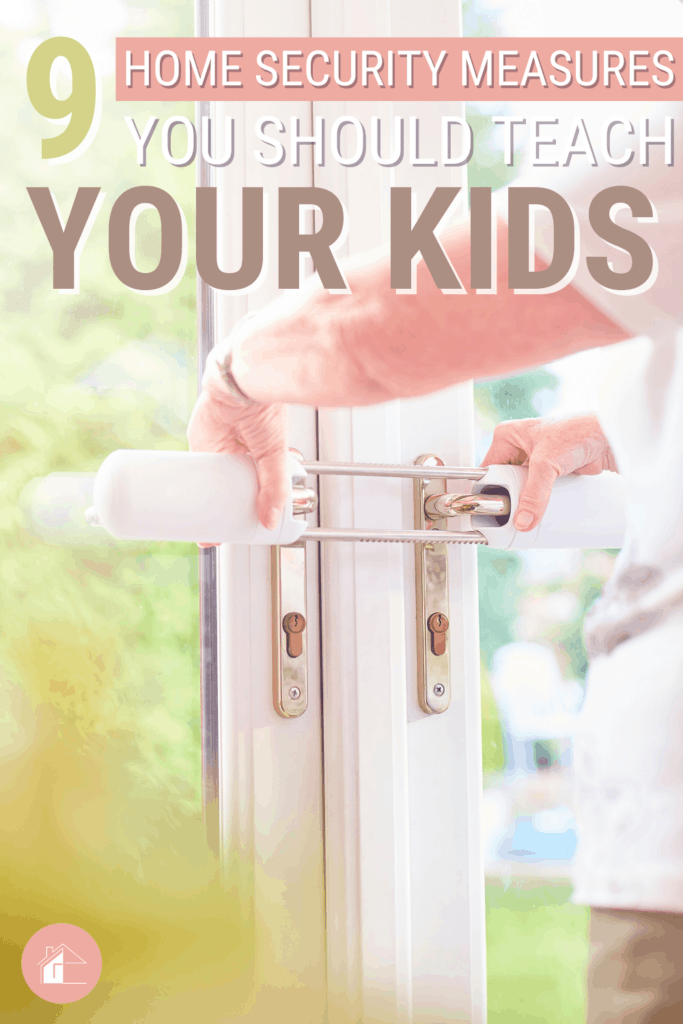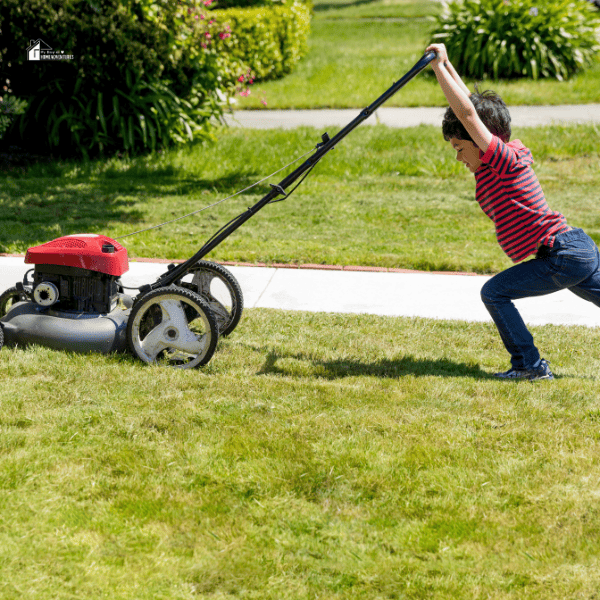9 Home Security Measures You Should Teach Your Kids
This post may contain affiliate links which might earn us money. Please read my Disclosure and Privacy policies hereHow safe are your kids at home? Home safety is no simple matter. According to the Centers for Disease Control and Prevention, unintentional injuries are the leading cause of death among children and teens in the United States.
A lot of these accidents occur at home, but it’s crucial to emphasize that they are preventable. As a parent, you play an important role in keeping your child safe. Here are 9 home security measures that you should teach your children.

Making emergency phone calls
Teaching kids how to make emergency phone calls is a crucial life skill. Whether it’s 911, a neighbor or you, it’s important that you teach your kids how to call for each type of emergency.
Kids can feel more safe and confident when they know how to react correctly to emergencies such as fire, burglary, cuts, falls, and poisoning. Ensure that you write a list of emergency situations and the corresponding number and response.
It would also be helpful if you provide your kids a short script for emergency phone calls. The contact list should be easily visible to your kids. Consider placing it in different areas of your home, such as beside the landline, their bedroom, and kitchen.
Safeguarding the doors, including how to talk to strangers
Doors are one of the most vulnerable areas for kids. Your children should be trained to keep doors locked at all times. Advise them to not open the door to anyone unless with your permission.
Your kids must know proper communication with strangers at the door. Remember that burglars often disguise themselves as solicitors in order to fish for information about your home security.
In the event that your kid is home alone, it’s crucial that they indicate to strangers that you’re in the shower or talking with someone on the phone. Installing a peephole for your kids can also be useful as they will be less tempted to open the door to see who’s outside.
Operating the alarm system
Having a home security system installed is one of the best investments for your kids’ safety. However, it’s essential that your kids understand how to operate the system.
Arming and disarming the system are important maneuvers to teach your children, as well as activating the siren and managing basic functions.
A user-friendly device like the DSC Power series security system can be a huge advantage. It has an LCD touchscreen many kids will find easy to operate.
Bolster your home security system with devices that allow remote controlling and communicators. These will enable you to keep in touch with your kids even while you’re away.
Eliminating the risk of poisoning and choking
Parents and guardians must protect children against the serious risk of poisoning and choking at home. A lot of children are lured by potentially hazardous items that they may mistake for food.
Medicine bottles, for example, can attract children and should be kept properly. Remind your children to keep off small enclosed spaces such as the dishwasher and cupboards.
Teach your kids to sit while eating and to chew their food thoroughly. Clean up after your kids have eaten, checking the floor for dropped foods that can be choking hazards.
Maintaining safety in the yard and pool
The yard and the pool are fun areas for many kids. However, they can be extremely dangerous especially for young children.
Drowning is a common accident in many homes with a pool. Educate your children about pool safety and first-aid.
If you have active and curious toddlers, consider installing pool covers. Sharp tools for the yard like clippers and hedge trimmers should be in a locked shed or closet. Also, make sure that there are no toxic plants on your property.
Why you should practice security scenarios with your kids
A great way to teach kids about home security is through role-playing. Role-playing different security scenarios with your kids will help prepare them for actual emergencies.
Practice at different parts of the house. This will give your children practical experience in case of a real-life crisis at home.
The important thing is that you train your kids with emergency strategies for occasions such as a home invasion, power outage, and natural calamities.
Giving your kids, a strong foundation of safety preparedness will empower them to be responsible and capable at all times.
Establish protection against falls
Your home is where your kids should feel they can comfortably roam around. But how do you prevent them from falling and hitting their heads?
Orient your children about danger zones in the house such as open windows and stairs. Tell them to use handrails when using the stairs and to avoid running near tables and corners.
Shielding your kids from the dangerous online world
In this age when many kids have easy access to Internet-connected devices, online safety should be an urgent consideration.
With so many predators and criminals roaming freely on cyberspace, it’s important that you educate your children about the dangers online. Never assume that your kids are simply playing games on their mini gadget.
Check out these related posts:
- How To Support a Parent With a Special Needs Child
- 4 Reasons You Should Encourage Your Kids to Develop Hobbies
- 7 Things About Parenting You'll Kick Yourself For Not Knowing
A lot of kids nowadays use social media despite the age limitation of sites like Facebook, Instagram, and Twitter. While banning social media use among your kids is an option, it can also be helpful if you instill within them practical information about maintaining privacy and safety online.
Teach them to avoid posting their location and giving personal information to people who message them.
Preventing damage and fatalities due to fire
Home fires can cost you your property and your child’s life. For the best protection, install smoke alarms on every level of your home and in crucial areas such as the kitchen and bedroom.
Teach your kids to never play with matches and lighters, and be strict in keeping these items away from them. Create and practice a fire emergency plan with two or more exits.
Conclusion
It’s important to teach children about home security to build their confidence and adeptness. Strengthening your child’s sense of home security is vital in preventing injury and fatality.
When your kids play an active role in creating a safe environment, you can be less worried about their security even when you’re not home.
Your turn: In your opinion what should parents be teaching their kids about home security?
About the author:
John Levi Cuyoca enjoys doing community outreach and promote kids’ education. John believes that influencing kids might create a positive change in our society He also loves to eat, play basketball, and to travel.







This is a great time for this reminder. Reading through it helped me to remember that it has been waaay too long since our family did a practice fire drill. I’ve taught the kiddos the basics in home security, but honestly, I feel a whole lot better about many of the craziest possible situations after we got our awesome high-drive German shepherd. She’s my favorite family protection device 😉